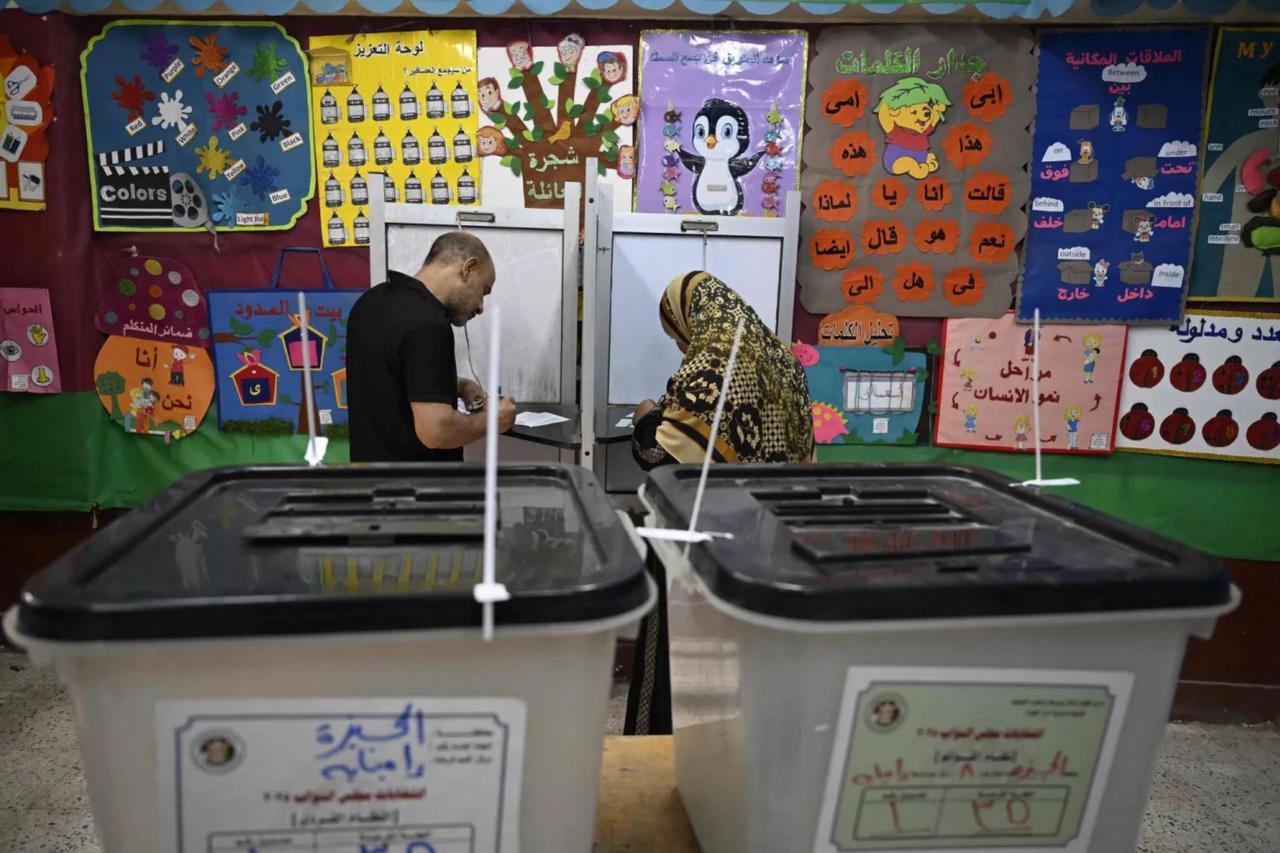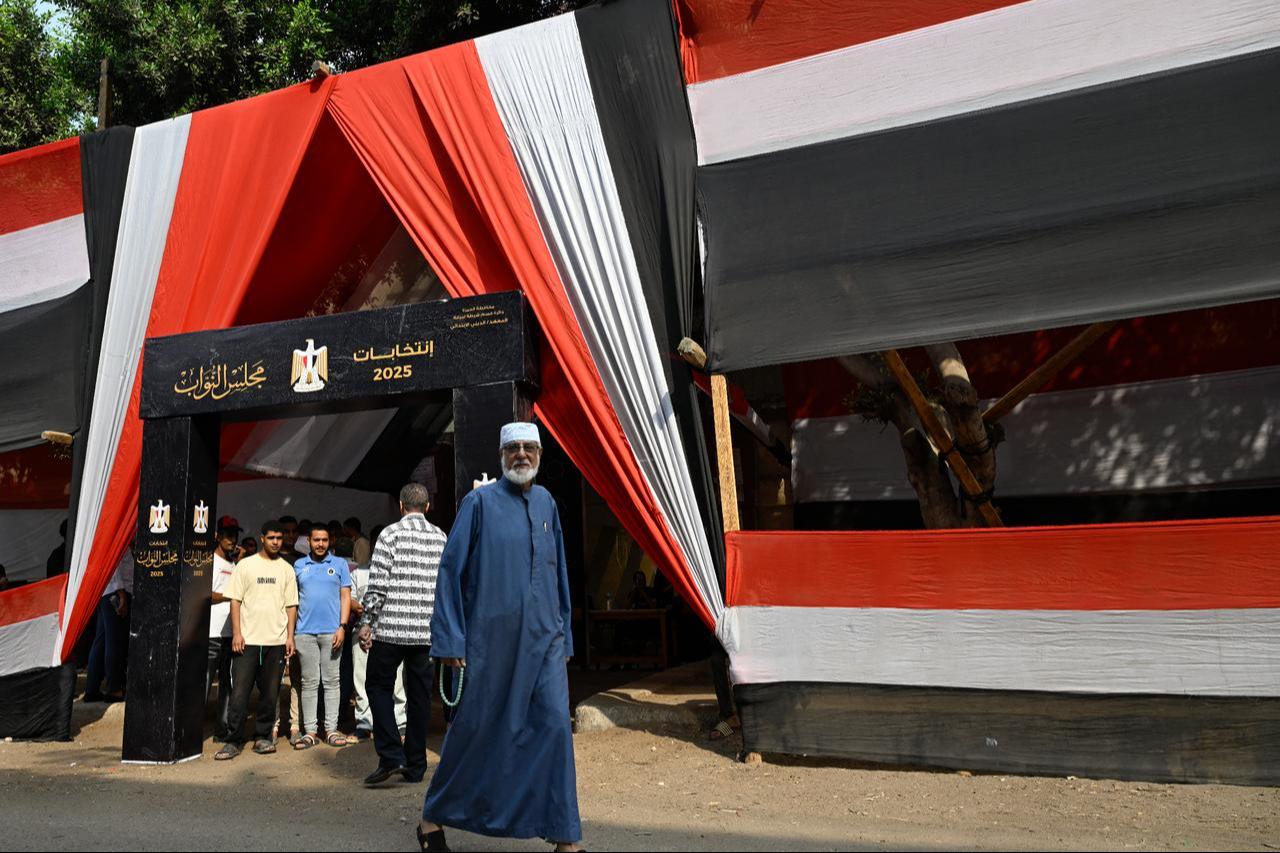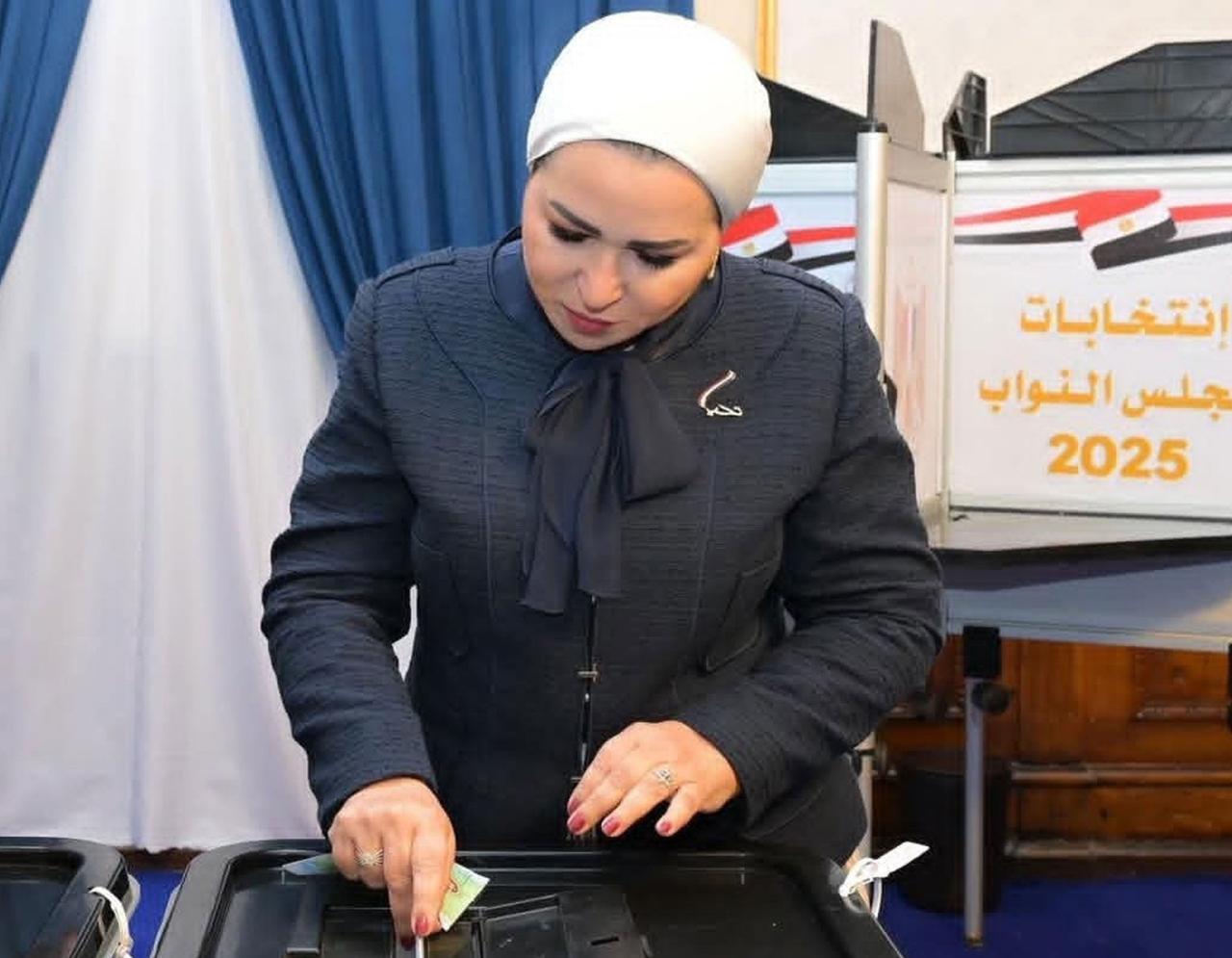
Voters in Egypt cast their ballots Monday in the second and final phase of the 2025 House of Representatives elections, as monitoring groups and media outlets reported ongoing electoral violations, low turnout, fabricated voter lines and rising vote buying in several Cairo districts.
The National Election Authority has already annulled results in 19 districts from the first phase, citing fundamental flaws in the voting and counting process.
Elections concluded Tuesday evening, followed by the start of ballot counting in preparation for announcing the results.
According to Arab media reports, the second phase witnessed even greater violations than the first, which included vote buying, the distribution of food supplies and assaults by hired thugs targeting independent candidates.
This came after Egyptian President Abdel Fattah el-Sisi urged the National Election Authority not to hesitate in canceling the vote, whether entirely or partially, if it proved impossible to determine voters’ true will. The authority then annulled the results of 19 electoral districts across seven governorates.

Despite the rerun and the measures put in place, violations continued to surface. Monitoring teams from the Andalus Center for Tolerance Studies and Anti-Violence reported that, on the second day of voting in the second phase of parliamentary elections, several practices continued to undermine the integrity of the electoral process.
Turnout remained noticeably low despite intensive attempts to present the opposite.
The monitoring teams confirmed that fabricated lines are still being staged in front of many polling stations, where citizens are gathered solely for filming, while the stations themselves remain almost empty inside.
Observers say this recurring scene raises concerns that it could later be used as a cover to alter turnout rates or election results.
Al-Araby Al-Jadeed documented a rise in vote-buying prices in the Nasr City and Heliopolis constituency in eastern Cairo, reaching 600 Egyptian pounds ($12.50) per voter at polling stations in Madinat al-Amal (formerly Ezbet al-Haggana), the Tenth District and Zahraa Nasr City.
Voters were reportedly paid in exchange for casting ballots for the “National List” candidates running individually.

The Egyptian Dostour Party said the second phase witnessed tense conditions and a number of incidents, violations and irregularities linked to the behavior of some candidates’ supporters
In a statement, the party said that the monitoring efforts of its candidates in 11 electoral districts across Cairo, Gharbia, Sharqia, Dakahlia and Qalyubia revealed several violations and recurring practices.
The most prominent were clusters of vote-buying operations, known as “election committee identification points”, set up outside polling complexes, involving the distribution of cash or coupons.
A large number of these points were detected and documented by the campaigns of the party’s candidates.
According to the statement, “a number of complaints were submitted by the Dostour Party chairperson to the National Election Authority.”
The party added that “the individual in charge of a vote-buying point was arrested on charges of directing voters to cast ballots for specific candidates, Abdallah Rimah and Hatem Siam, in exchange for 200 pounds ($4.20).”
In its turn, the Reform and Renaissance Party strongly condemned the assault on its candidate in the Rod al-Farag district, as well as attacks on members of her family and campaign team, stressing that such actions “have nothing to do with the democratic process” and constitute a clear violation of the law and the ethical values of fair competition.
The party emphasized its firm rejection of these practices, which it said undermine the electoral process, negatively affect the climate of free competition and introduce elements of violence and pressure into a process that should be based on respect for the popular will.